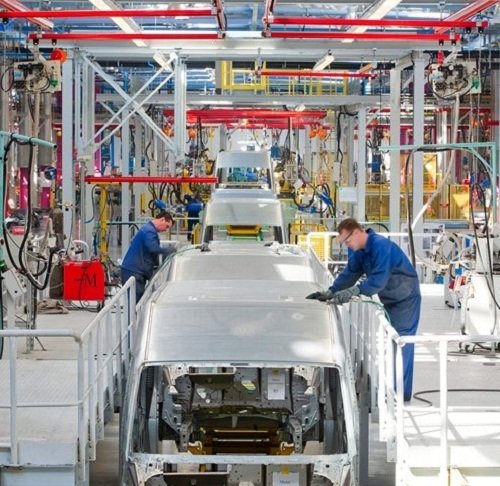Car manufacturing could be made less expensive, more eco-friendly and faster to manufacture, with a new technology for aluminium component production.
A new casting technology makes it possible to cast aluminium bolts with small diameters and high-quality surface properties which enables the metal to be used directly in the manufacture of parts such as suspension components in cars.
By using cast material, the production of aluminium car components becomes less expensive, more eco-friendly and more efficient, while also reducing the amount of production scrap generated.
The casting technology has been developed by the Norwegian aluminium producer Hydro and is carried out under vacuum conditions.
Currently, a car component production line is made up of several production steps, including casting, heat treatment, extrusion and the subsequent forging/shaping process that ensures that the final product is fashioned with its intended shape.
“This casting technology allows for the removal of an entire process step in the production line”, explained Siri Marthe Arbo, a researcher with SINTEF. “Our process effectively removes the extrusion stage.”
The new casting technology demonstrates that it is possible to use cast material to produce suspension components and thus eliminate the extrusion step from the production process. It also results in fewer defects and gives the raw material a high-quality surface finish
“This is a gamechanger in the manufacture of aluminium car components because the process is both quicker and cheaper without the extrusion stage,” Arbo added.
The research team has been working to obtain an understanding of how the cast material behaves and what properties it acquires during forging. It has been conducting comparisons to identify optimal alloy compositions and looking into what changes need to be made to the production process.
“We’ve been looking into heat treatment and all the various steps in the process that the material has to undergo so that we can demonstrate that the cast material is free of defects and fit for purpose. We’ve also been using models and simulations to help us better understand what happens to the material during the production process”, Arbo added.
Figures from the Society of Motor Manufacturers and Traders (SMMT) released today show that demand for new greener cars soared by nearly three-quarters last year amid a spike in sales of electric models.
Source: E&T










